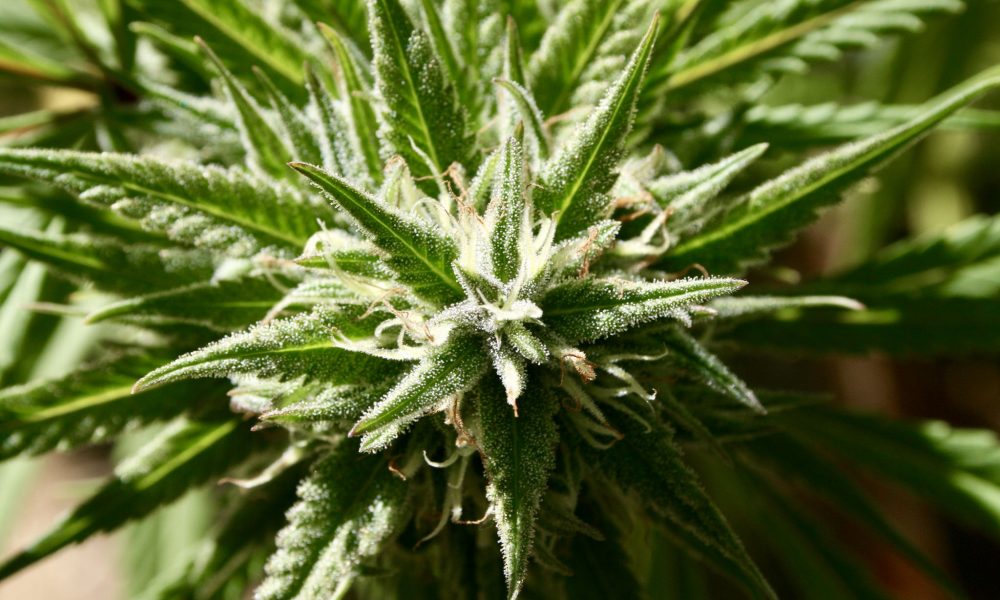A key House committee on Thursday is set to vote on a bill to federally legalize marijuana and promote social equity. The action was originally set to take place on Wednesday, but it was pushed back due to time constraints as members considered multiple other, unrelated proposals.
The Marijuana Opportunity, Reinvestment and Expungement (MORE) Act will be taken up by the House Judiciary Committee, which is chaired by the legislation’s sponsor, Rep. Jerrold Nadler (D-NY).
The development comes one week after the full House voted in favor of a defense spending bill that includes an amendment that would protect banks that service state-legal cannabis businesses from being penalized by federal regulators.
Watch the panel discuss the legalization proposal in the video below:
While the legislation has largely stayed intact compared to the prior version that passed the chamber last year in a historic vote, there were some modest revisions that were incorporated upon its reintroduction in May.
The panel on Thursday may consider additional changes before moving the measure forward.
Rep. Thomas Massie (R-KY), for example, said on Tuesday that he plans to force a vote on removing the bill’s tax provisions as well as grant funds it would create to help repair the harms of the war on drugs. A libertarian-leaning lawmaker, he backs the general idea of ending cannabis prohibition but is not in favor of creating new government programs.
The MORE Act would:
1. Remove the federal prohibition on marijuana
2. Expunge prior convictions of marijuana crimes
3. Tax marijuana
4. Set up a new government spending programTomorrow in judiciary committee, I’ll be offering an amendment to remove the tax and spend provisions
— Thomas Massie (@RepThomasMassie) September 28, 2021
Members of the Judiciary Committee have marked up nearly a dozen other unrelated pieces of legislation during the two-day meeting.
Nadler’s cannabis legislation passed the House last year but did not advance in the Senate under GOP control. This time around, advocates are optimistic that something like the chairman’s bill could be enacted now that Democrats run both chambers and the White House, and as more states are moving to enact legalization.
The legislation would remove marijuana from the Controlled Substances Act (CSA), allow people with cannabis convictions to have their records expunged and create a federal tax on marijuana with the revenue going to support community reinvestment and other programs.
It also contains language to create a pathway for resentencing for those incarcerated for cannabis offenses, protect immigrants from being denied citizenship over marijuana and prevent federal agencies from denying public benefits or security clearance due to its use.
The ACLU and the Leadership Conference on Civil and Human Rights—which includes NAACP, Human Rights Campaign, Anti-Defamation League, National Organization for Women and People for the American Way, National Urban League, National Education Association, American Federation of Teachers and the AFSCME and AFL-CIO labor unions—wrote a letter of support for the legislation ahead of the initially scheduled markup on Wednesday.
Along with @ACLU, we urge @HouseJudiciary members to advance the Marijuana Opportunity Reinvestment and Expungement (MORE) Act today.
Our nation needs this comprehensive marijuana justice bill, which addresses justice reform, racial justice, and equity: https://t.co/i9FPLkMe8A pic.twitter.com/IIvYKCrudi
— The Leadership Conference (@civilrightsorg) September 29, 2021
The groups said the MORE Act “addresses the collateral consequences of federal marijuana criminalization and takes steps to ensure the legal marketplace is diverse and inclusive of individuals adversely affected by prohibition.” It also “takes significant steps to right the wrongs of decades of federal marijuana criminalization by providing for the expungement and resentencing of marijuana offenses.”
But while advocates have broadly embraced the legislation and urged its passage, some have raised concerns about certain provisions and hope the bill can be revised as it moves through the process.
ACLU and the Leadership Conference, for example, expressed concerns about a component that was added to render so-called drug “kingpins” ineligible for expungements, pointing out that such language “has been interpreted broadly by courts and would prevent individuals who are not high-level participants from seeking relief under the bill’s expungement and resentencing provisions.”
“If the exclusion remains, individuals excluded from the expungement process will continue to be blocked from accessing employment, housing, and an education based on their prior convictions,” it said. “We believe the bill should be amended to ensure that those with excluded convictions are eligible for expungement within five years, assuming there have been no new convictions in the intervening time. Such a change will stay true to the intent of the bill and provide relief to those caught up in outdated enforcement efforts.”
Meanwhile, there’s been some contention between advocates and stakeholders on which reform should come first: the bipartisan banking legislation that’s cleared the House in some form five times now or the comprehensive legalization bill that passed the chamber for the first time late last year.
Legalization advocates do want to see legislation from Rep. Ed Perlmutter (D-CO) become enacted, as there are public safety problems caused by all-cash businesses and it would take an important step toward normalizing the growing industry. But social equity-minded activists argue that advancing the incremental reform first would mainly benefit large marijuana businesses without addressing the harms of cannabis criminalization.
The fate of the banking proposal will likely be decided in conference with the Senate, which has not included the policy change in its National Defense Authorization Act (NDAA) and where key lawmakers have insisted that they will push for broader reform before allowing the incremental change to be enacted.
Separately, Senate Majority Leader Chuck Schumer (D-NY), Finance Committee Chairman Ron Wyden (R-OR) and Sen. Cory Booker (D-NJ) are also leading the charge on a legalization bill in their chamber. But weeks after a public comment period on a draft version of the proposal closed, finalized text has yet to be formally filed—and it’s far from certain that Schumer will be able to find enough votes to advance the comprehensive reform through his chamber.
It should be noted that President Joe Biden remains firmly opposed to adult-use marijuana legalization. While he supports more modest reforms such as decriminalizing cannabis, expunging prior records and letting states set their own marijuana policies, there’s an open question about whether he would be moved to sign a broad bill like the MORE Act or the Senate legalization legislation should such a proposal reach his desk.
With respect to the MORE Act, the latest version does not include language that was added just before last year’s House floor vote that would have prevented people with previous cannabis convictions from obtaining federal permits to operate marijuana businesses. That was a contentious provision that appeared at the last minute and which advocates strongly opposed.
WATCH LIVE: @HouseJudiciary continues marking up a bipartisan package of bills that will decriminalize marijuana federally and invest in communities that have been harmed by the War on Drugs, limit race-based hair discrimination, and more.https://t.co/0r1ZjRMFQQ
— House Judiciary Dems (@HouseJudiciary) September 30, 2021
And whereas the the prior version of the legislation contained language to help economically disadvantaged people enter the legal marijuana market, that language was revised to extend Small Business Administration (SBA) aid—such as loans, financial literacy programs and job training—to help people who have been harmed by the war on drugs pursue business opportunities in any industry, not just cannabis.
Advocates are encouraged by the new revisions to the bill, but there are still additional components they hope to see changed as it goes through the legislative process. For example, they also took issue with provisions added to the MORE Act prior to last year’s vote that would have stipulated that cannabis can still be included in drug testing programs for federal workers.
The current version of the MORE Act has 76 cosponsors. In addition to the Judiciary Committee, it has been referred to eight other panels. While last Congress’s version of the bill went straight to the floor after clearing its first stop because other committees waived their jurisdiction, it’s not clear if that will happen again this time.
Separately, a proposal to federally deschedule marijuana that does not include social equity components was filed by a pair of Republican congressmen in May.
IRS Official Offers Tax Advice To Marijuana Businesses And Says Feds Expect Industry To Keep Growing
Photo courtesy of Brian Shamblen.
Medical Disclaimer:
The information provided in these blog posts is intended for general informational and educational purposes only. It is not a substitute for professional medical advice, diagnosis, or treatment. Always seek the advice of your physician or other qualified healthcare provider with any questions you may have regarding a medical condition. The use of any information provided in these blog posts is solely at your own risk. The authors and the website do not recommend or endorse any specific products, treatments, or procedures mentioned. Reliance on any information in these blog posts is solely at your own discretion.







